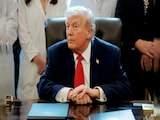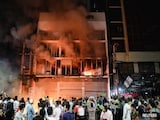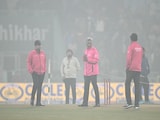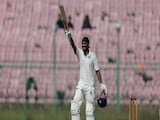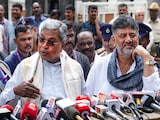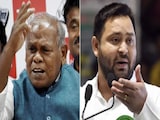Fort Meade, Maryland:
The soldier accused of the biggest leak of classified material in US history chose not to testify at his court-martial yesterday, when the defence rested its case.
US Army Private First Class Bradley Manning, 25, is charged with disclosing more than 700,000 classified files, combat videos and State Department cables to the pro-transparency website WikiLeaks.
Manning, who served as an intelligence analyst in Iraq in 2009 and 2010, could face life in prison without parole if convicted of the most serious of 21 charges, aiding the enemy.
Manning told Judge Colonel Denise Lind he would not testify in his own defence, which rested on Wednesday after only three days with nine witnesses. The trial had been expected to take another month and the defence had planned to call 46 witnesses.
Court-martial prosecutors spent five weeks portraying Manning's wholesale leaking of information as recklessly endangering others and benefiting US enemies, including the extremist group Al Qaeda.
Defence lawyers sought to show that the short, bespectacled Manning was naive but well-intentioned in seeking to inform Americans about the reality of the wars in Afghanistan. He saw himself as an important whistleblower whose aim was to spark worldwide discussion and positive change, they said.
More than three years after Manning's arrest in May 2010, the US intelligence community is reeling again from leaked secrets, this time exposed by former US intelligence contractor Edward Snowden, still on the run. WikiLeaks founder Julian Assange has surfaced again as a major player in the newest scandal, this time aiding Snowden in eluding authorities to seek asylum abroad.
Lind, who is both overseeing the Manning case and will hand down a decision, has not set a date for a ruling.
Aiding the enemy?
Manning's lawyer also sought to downplay the importance of the material he is alleged to have leaked or stolen. Defence witnesses testified that much of the information was available from public records before WikiLeaks released it.
And WikiLeaks itself, with its model of decentralized leaking of secrets, was portrayed as a milestone in journalism by the final defence witness, Harvard Law School professor Yochai Benkler.
WikiLeaks is "a clear distinct component of what in the history of journalism we see as high points, where journalists are able to come in and say, 'Here's a system operating in a way that is obscure to the public and now we're able to shine the light,'" testified Benkler, the co-director of the Berkman Center for Internet and Society.
The brevity of the defence case surprised some observers, including Elizabeth Goitein, co-director of the Liberty and National Security Program at the Brennan Center for Justice in Washington, who expected more discussion about whether files were closely held by the government.
Still, she said the defence appeared confident that the government failed to prove its case against Manning.
"I think the aiding the enemy charge is going to be a tough one for the government," Goitein said.
Manning, who has already pleaded guilty to 10 lesser offenses, remains charged with 21 counts ranging from espionage to computer fraud to aiding the enemy.
Lind set a hearing Monday on whether a prosecution rebuttal hearing should be held. She also will rule on routine defence motions that four of the charges should be dismissed.
If Lind rules that the rebuttal hearing should be held, it will be heard on July 18. If not, closing arguments will be on Tuesday.
US Army Private First Class Bradley Manning, 25, is charged with disclosing more than 700,000 classified files, combat videos and State Department cables to the pro-transparency website WikiLeaks.
Manning, who served as an intelligence analyst in Iraq in 2009 and 2010, could face life in prison without parole if convicted of the most serious of 21 charges, aiding the enemy.
Manning told Judge Colonel Denise Lind he would not testify in his own defence, which rested on Wednesday after only three days with nine witnesses. The trial had been expected to take another month and the defence had planned to call 46 witnesses.
Court-martial prosecutors spent five weeks portraying Manning's wholesale leaking of information as recklessly endangering others and benefiting US enemies, including the extremist group Al Qaeda.
Defence lawyers sought to show that the short, bespectacled Manning was naive but well-intentioned in seeking to inform Americans about the reality of the wars in Afghanistan. He saw himself as an important whistleblower whose aim was to spark worldwide discussion and positive change, they said.
More than three years after Manning's arrest in May 2010, the US intelligence community is reeling again from leaked secrets, this time exposed by former US intelligence contractor Edward Snowden, still on the run. WikiLeaks founder Julian Assange has surfaced again as a major player in the newest scandal, this time aiding Snowden in eluding authorities to seek asylum abroad.
Lind, who is both overseeing the Manning case and will hand down a decision, has not set a date for a ruling.
Aiding the enemy?
Manning's lawyer also sought to downplay the importance of the material he is alleged to have leaked or stolen. Defence witnesses testified that much of the information was available from public records before WikiLeaks released it.
And WikiLeaks itself, with its model of decentralized leaking of secrets, was portrayed as a milestone in journalism by the final defence witness, Harvard Law School professor Yochai Benkler.
WikiLeaks is "a clear distinct component of what in the history of journalism we see as high points, where journalists are able to come in and say, 'Here's a system operating in a way that is obscure to the public and now we're able to shine the light,'" testified Benkler, the co-director of the Berkman Center for Internet and Society.
The brevity of the defence case surprised some observers, including Elizabeth Goitein, co-director of the Liberty and National Security Program at the Brennan Center for Justice in Washington, who expected more discussion about whether files were closely held by the government.
Still, she said the defence appeared confident that the government failed to prove its case against Manning.
"I think the aiding the enemy charge is going to be a tough one for the government," Goitein said.
Manning, who has already pleaded guilty to 10 lesser offenses, remains charged with 21 counts ranging from espionage to computer fraud to aiding the enemy.
Lind set a hearing Monday on whether a prosecution rebuttal hearing should be held. She also will rule on routine defence motions that four of the charges should be dismissed.
If Lind rules that the rebuttal hearing should be held, it will be heard on July 18. If not, closing arguments will be on Tuesday.
© Thomson Reuters 2013


